Taiwanese Delegation Visits Thailand to Learn about Salt Pan Wetland Conservation
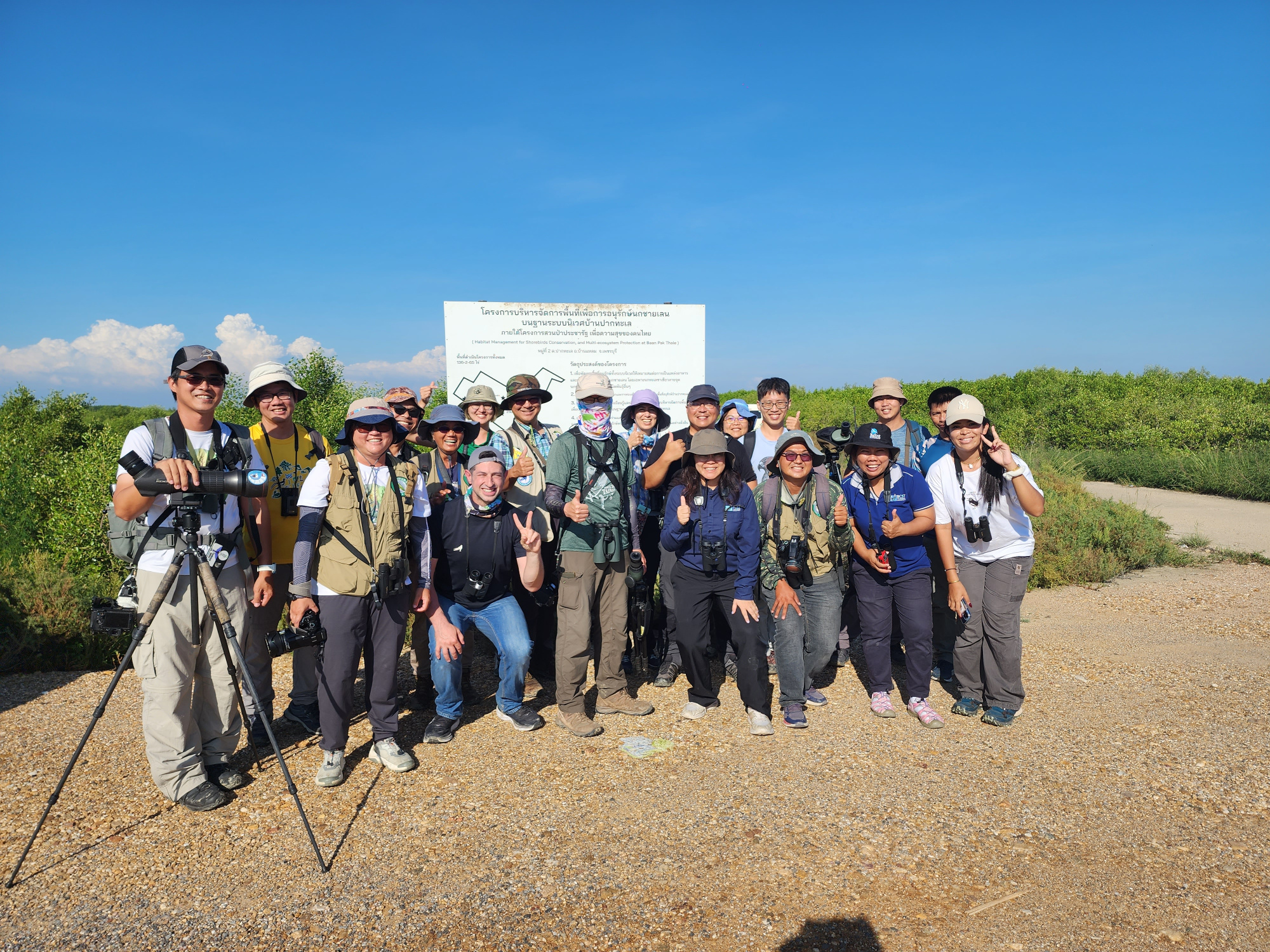
Touring important bird habitat in the Pak Thale area
by the TWBF International Affairs Division
From November 13-16, 2023, a group of Taiwanese NGOs visited Thailand where they learned about the salt pan wetland conservation work and related issues taking place there, particularly through the efforts of the Bird Conservation Society of Thailand. Organized by the Bird Conservation Society of Thailand (BCST) and the Taiwan Wild Bird Federation (TWBF), the visit built on an online session held between the organizations in September 2023.
Agricultural wetlands such as salt pans or fish ponds play a critical role in many countries which have lost their natural wetlands. Such is the case with Taiwan, which saw a reduction of its wetlands by nearly 60 percent due to development and reclamation. Taiwan’s former salt pans, most abandoned in the early 2000s, now play an important role for many migratory birds, particularly in southwestern Taiwan. This includes globally threatened species such as the Spoonbilled Sandpiper, Black-faced Spoonbill, Great Knot and Red Knot. In the late 2010s, numerous abandoned salt pans were threatened with being converted in solar panel farms in southern Chiayi County’s Budai Salt Pan Wetlands and Northern Tainan’s Chiku and Jiangjun salt pan wetlands. The Kaohsiung Wild Bird Society in 2019 began adopting land in Budai Salt Pan Wetland. Meanwhile in 2022, six NGOs which had banded together to stop solar projects in the areas of Chiku and Jiangjun formed an alliance and adopted 1,650 ha in northern Tainan City. Alliance members include the Taiwan Wild Bird Federation, the Taiwan Black-faced Spoonbill Conservation Association, the Wild Bird Society of Tainan, Wetlands Taiwan, the Taiwan Environmental & Planning Association and the Society of Wilderness. The alliance is to provide management for the property and help ensure quality habitat for migratory birds.
As part of these efforts, the alliance wished to learn more about other countries doing salt pan wetland conservation work. They found a good example in an old friend. The TWBF and BCST have been partners in conservation and supported each other for many years. The BCST is also the only other country in the region doing similar salt pan wetland conservation. The TWBF reached out to them on behalf of the alliance to see if they could visit Thailand and learn about their efforts. Thanks to funding from Taiwan's Shanghai Savings and Commercial Bank, which is supporting the alliances efforts in Tainan, a plan was made for a visit and exchange. Taiwan's partner organization the Kaohsiung Wild Bird Society also joined the trip as did the Taiwan Biodiversity Research Institute's Dr. Lin Ruey-shing.
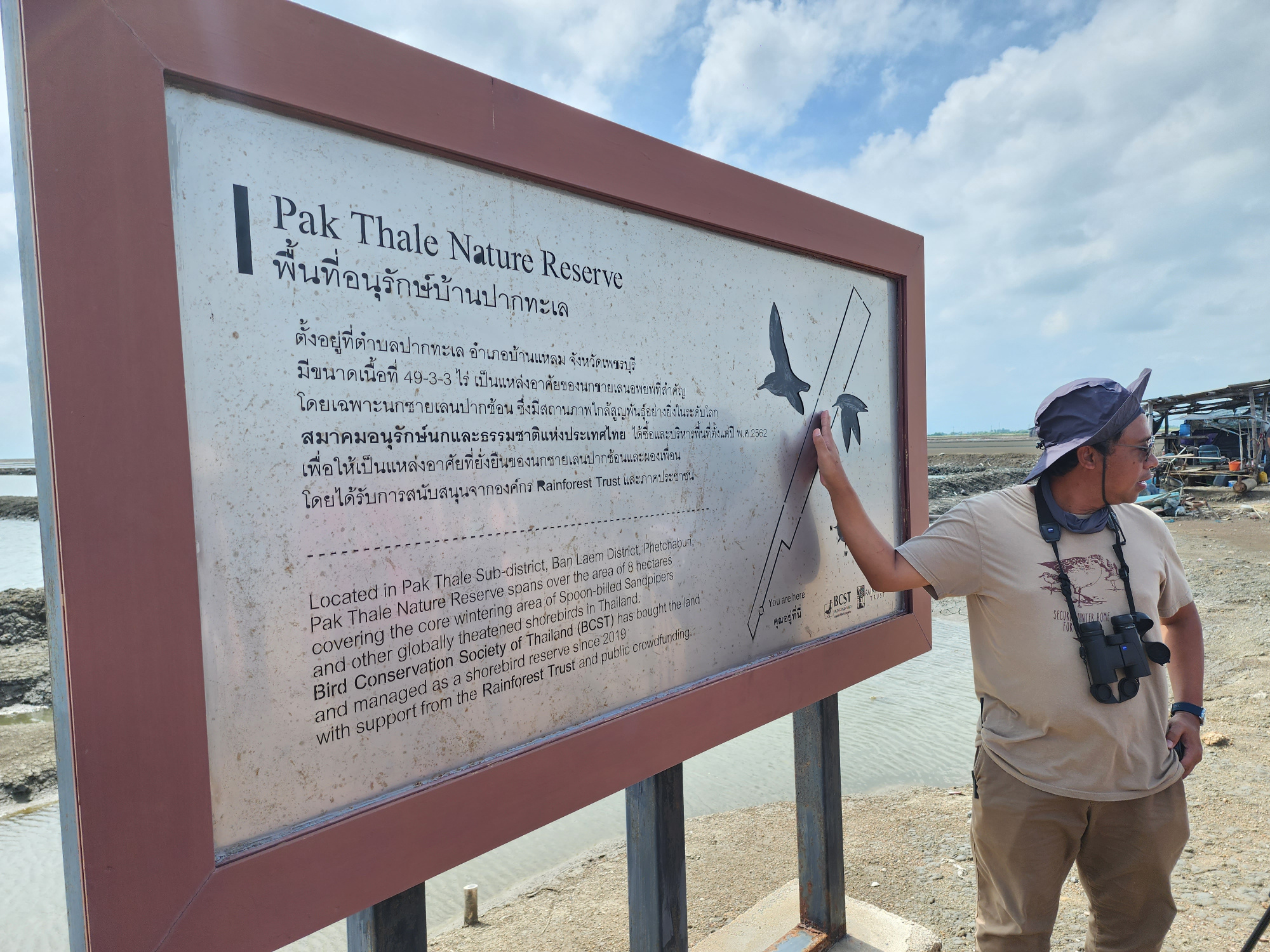
Nick from BCST introduces the Pak Thale Nature Reserve
The group arrived in Bangkok on the 13th. The next day the Thailand-Taiwan Salt Pan Wetland Conservation Exchange officially began. The 14 delegates from Taiwan boarded buses and headed to the Pak Thale Nature Reserve. The site is home to one of the most important wintering areas for the Critically Endangered Spoonbilled Sandpiper. In 2020 the BCST purchased 8 ha of salt pans there. They have since made many efforts to help engage with the local community, conserve and manage the purchased site, and do more to help improve the local economic situation. In the morning, the Taiwanese were shown around the reserve and met key stakeholders in the area. Then in the afternoon they visited a mangrove forest and water treatment plant before meeting with Mr. Daeng. A former fisher and hunter, he is now a bird guide and local conservation star who for over 20 years has worked to help the breeding Malayan Plover population. He shared his story with the guests and explained to them so of the issues he faces in doing his work.
The next day began with the group looking for Spoonbilled Sandpipers at Pak Thale before meeting with government officials. Present were representatives of the local government (the Sub-district Administrative office) and Regional government (the Department of marine and Coastal Resources). On behalf of the Taiwanese delegation, Ms. Chen Yu-ping of the Taiwan Environmental & Planning Association presented about the conflict between green energy projects and wildlife habitat in Taiwan before Dr. Lin of TBRI presented on the importance and history of Taiwan's salt pan wetlands. After this the government officials made speeches about their work and their thoughts on this important issue. This was followed by a discussion with the Thai officials. One particular area of focus was on combatting coastal erosion.
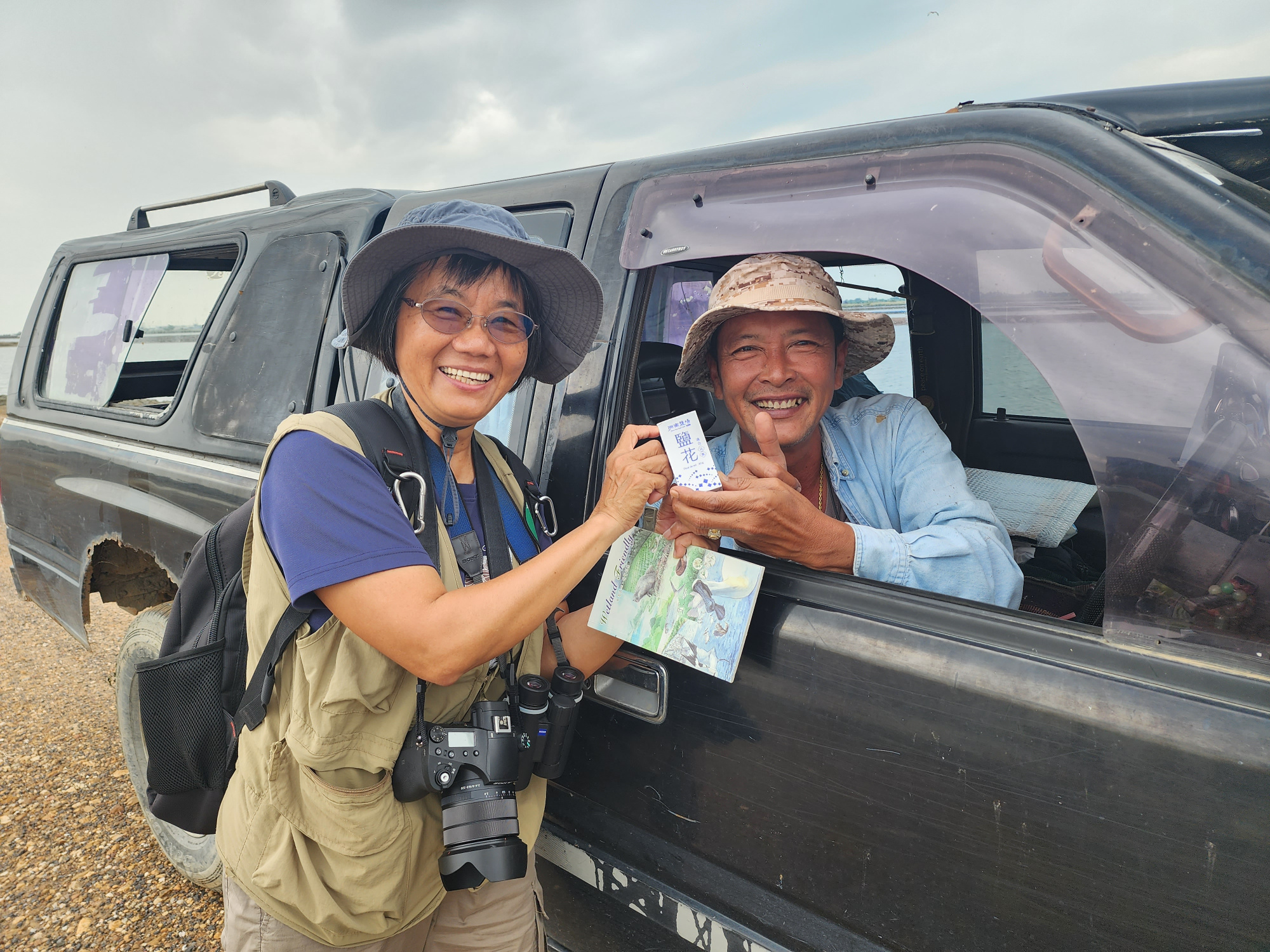
Sharing information about salt cultivation
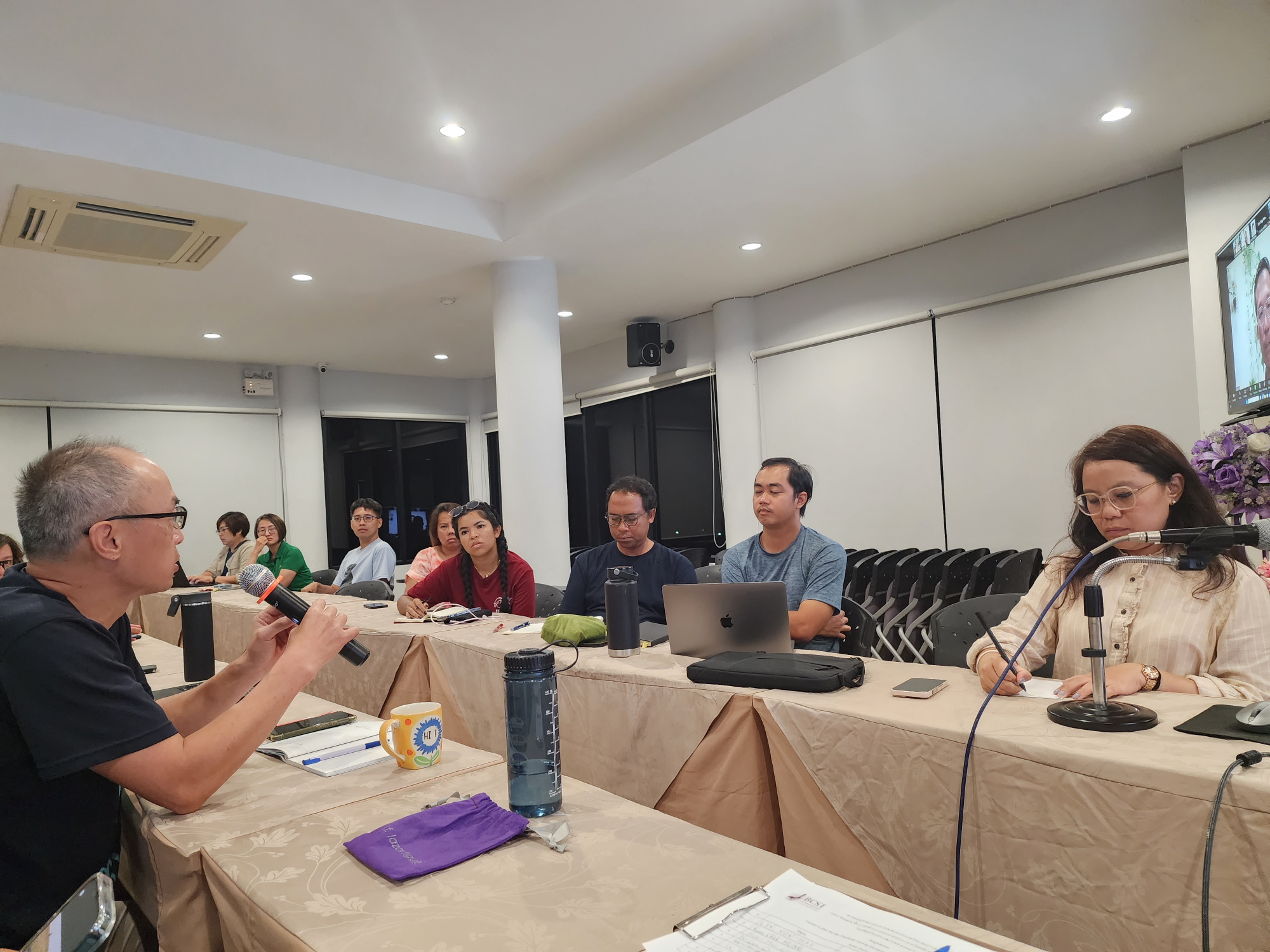
The sharing session on the second night
That night, there was an NGO sharing session. Taking place online and in person, the BCST president Dr. Petch opened the event. Presentations were made by the TWBF, BFSA, KWBS, Wetlands Taiwan, and the BCST on various topics such as community engagement, conservation work, and citizen science. After the presentations, all participants were called on to discuss how to take the conversations forward and ways to collaborate into the future.
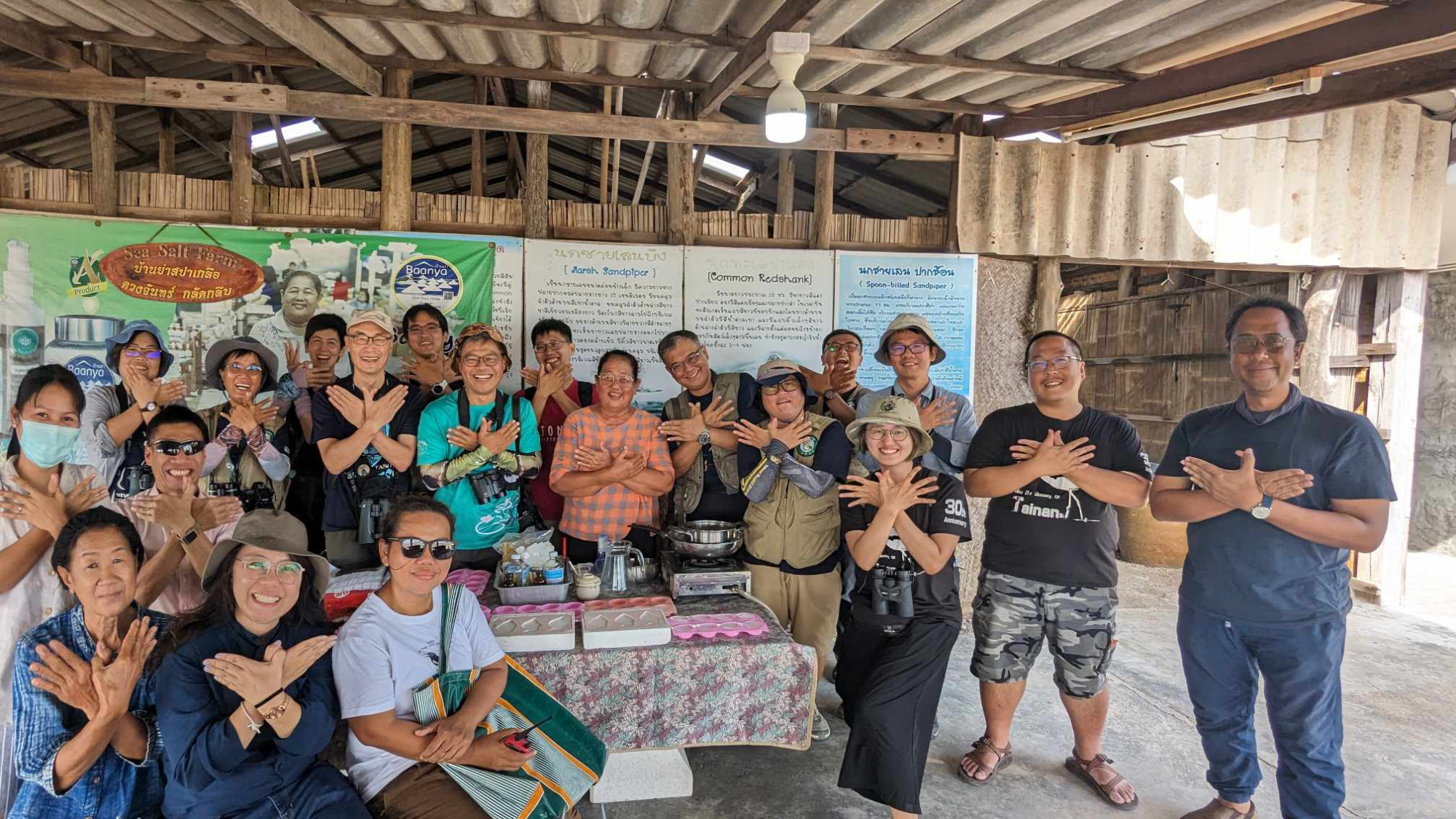
Visiting the Baanya Sea Salt Farm
On the third and final day, the Taiwanese team was taken to Koh Kham, another wintering site for the Spoonbilled Sandpiper. In the morning they paid a visit to the Koh Kham Conservation Club to learn more about the area and meet community leaders. This was followed by a trip in the afternoon to visit a women's group that creates soap and health/beauty projects using local salt. The Baanya Sea Salt Farm is run by local women and supports efforts to help women improve their livelihoods while also working toward sustainability and environmental goals. While there, the guests from Taiwan were able to take a tour of the site and make some of their own health and beauty products.
The trip was a great success and both the Taiwanese and Thai participants look forward to collaborating more on salt pan wetland and migratory bird conservation in the future!
